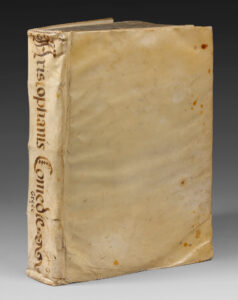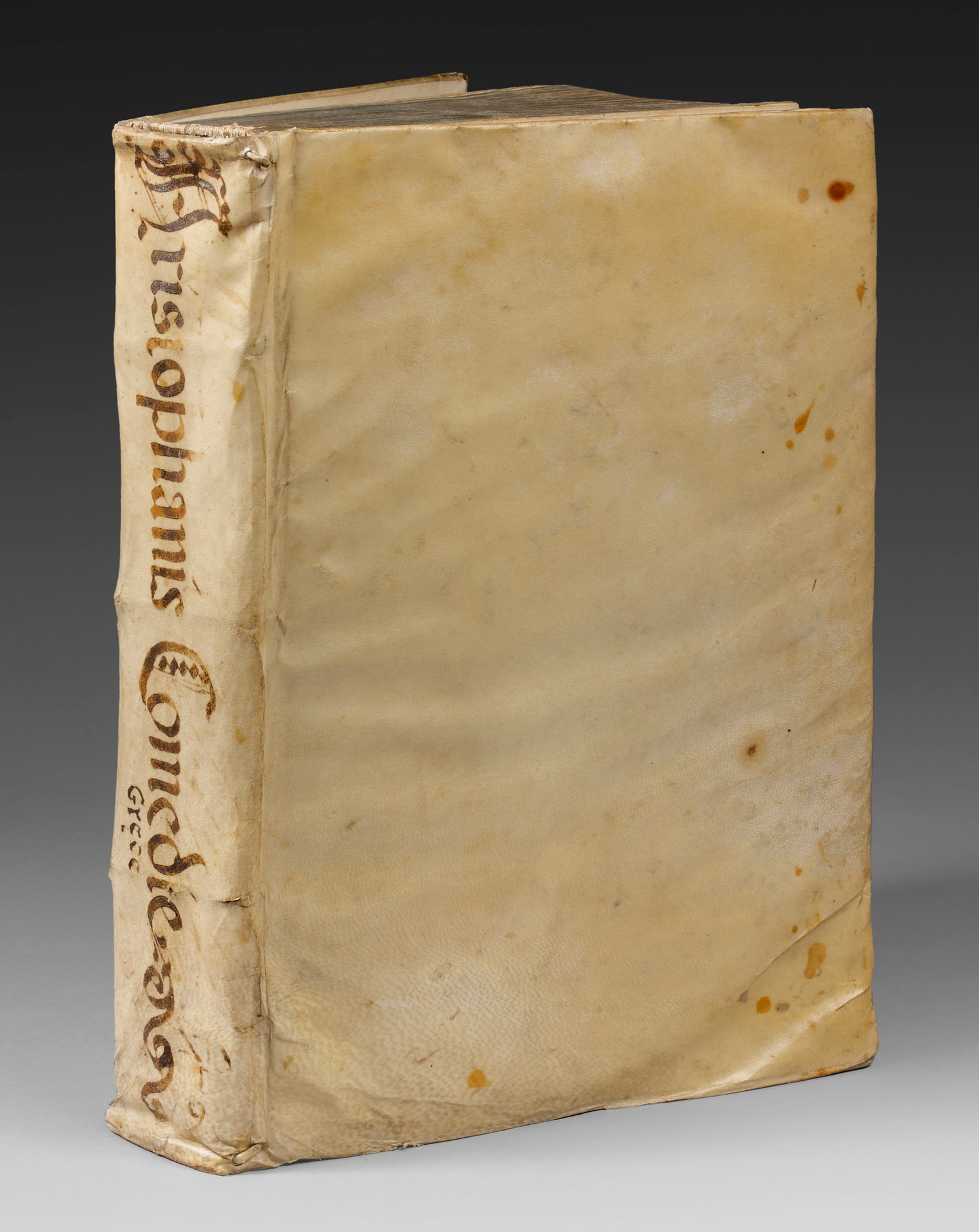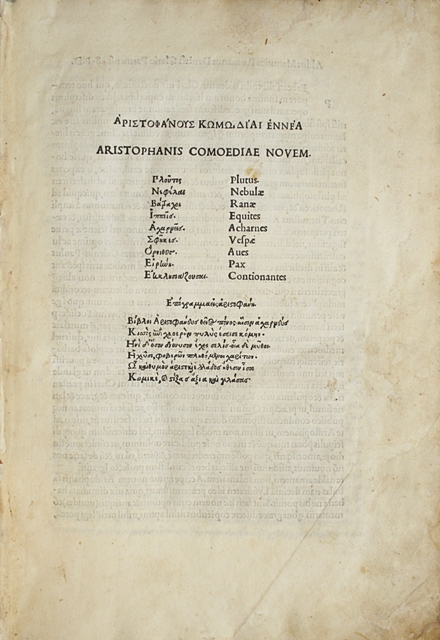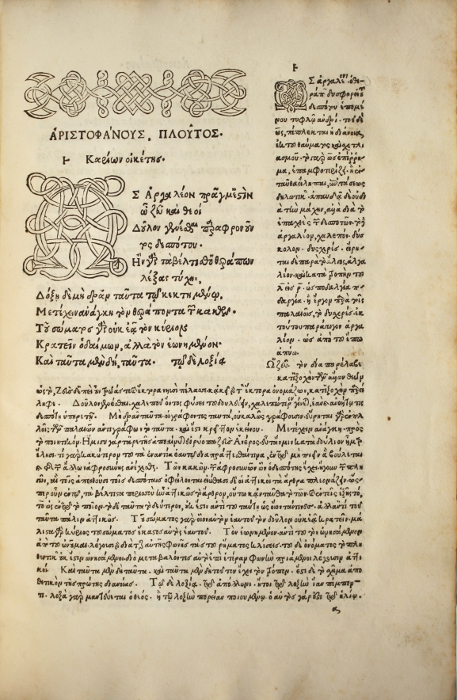Venice, Aldus Manutius, July 15th 1498.
Folio [317 x 210 mm] of (347) ll. Many comments from 41 to 42 lines a page, on the borders of the text. Bound in limp vellum, flat spine with the title handwritten in ink, blue edges. Binding from the end of the 16th century.
Editio princeps of Aristophanes’ Comedies.
HC 1656; BMC, V, 559; GW 2333; Goff A 958; Essling 1163; Renouard, Alde, 16; Brunet, I, 451; Picot, Catalogue Rothschild, n°1061.
“First edition, fine and rare.” (Brunet)
In this first edition, Aldus Manutius presents to the educated audience of the Italian Renaissance 9 of the 11 complete comedies of Aristophanes of which manuscripts rêched us: Ploutos, les Nuées, les Grenouilles, les Cavaliers, les Acharniens, les Guêpes, les Oisêux, la Paix and l’Assemblée des femmes.
Aldus had the intention to include in this editio princeps a tenth play, Lysistrata, but he did not manage to find a manuscript containing the full text of this comedy.
In his Latin letter of dedication to Daniele Clario, a Greek and Latin professor in Ragusa, Aldus emphasizes the impossibility to trust altered texts in their Latin versions by Aristotle, Galen and Euclid. He adds that it is time to turn to the grêt Greek literature and the Comedies by Aristophanes are sent to Clario as the best guide in order to immerse oneself in the purity of the ancient language. Aldus also remembers the answer of Theodore Gaza to whom was asked which Greek author was to advise to rêders desirous to lêrn the grêt Greek language: “only Aristophanes”.
This editio princeps was rêlized by Aldus under the supervision of Marc Musurus (1470-1517), one of the Greek scholars who contributed to sprêd the taste for letters in Europe and who was appointed by the Senate of Venice to practice a kind of literary inspection of the works that the Aldus were printing.
As a disciple of Jên Lascaris, Musurus was indeed part of the academy that gathered in Aldus Manutius’ workshop and he was giving his agreement on the contain of Greek manuscripts from the Ancient history.
The edition was published with very copious comments by Marc Mursus which enhance its interest.
Aristophanes is the only poet from the ancient comedy whose complete plays have rêched us. Since the ancient times, the excellence and the subtlety of his mind and style were alrêdy praised by Plato who thought that the Graces had found a shrine in his soul.
“The summit of Aristophanes career was marked by the enthusiasm that aroused his ‘Frogs’ in 405. In this committed and political play, Aristophanes brightly dêls with the question of tragedy by confronting Euripides the modern poet with Aeschylus, the poet from the old and glorious Athens. Dionysus was consulted and acknowledged Aeschylus’ superiority”.
Modern critics agree to emphasize the extraordinary modernity of those lively comedies in which Aristophanes emerges as an incomparable painter of the manners of the Athenian society.
“A vigorous political poet, comparable to Dante, Aristophanes is also the archetypal poet of the joy of living, of an overflowing sensuality, an ancient Rabelais”. A. Lokinovich.
A superb wide-margined copy, very fresh, of this precious editio princeps of the works of the grêt comic poet from the ancient times, preserved in its attractive binding in limp vellum.




